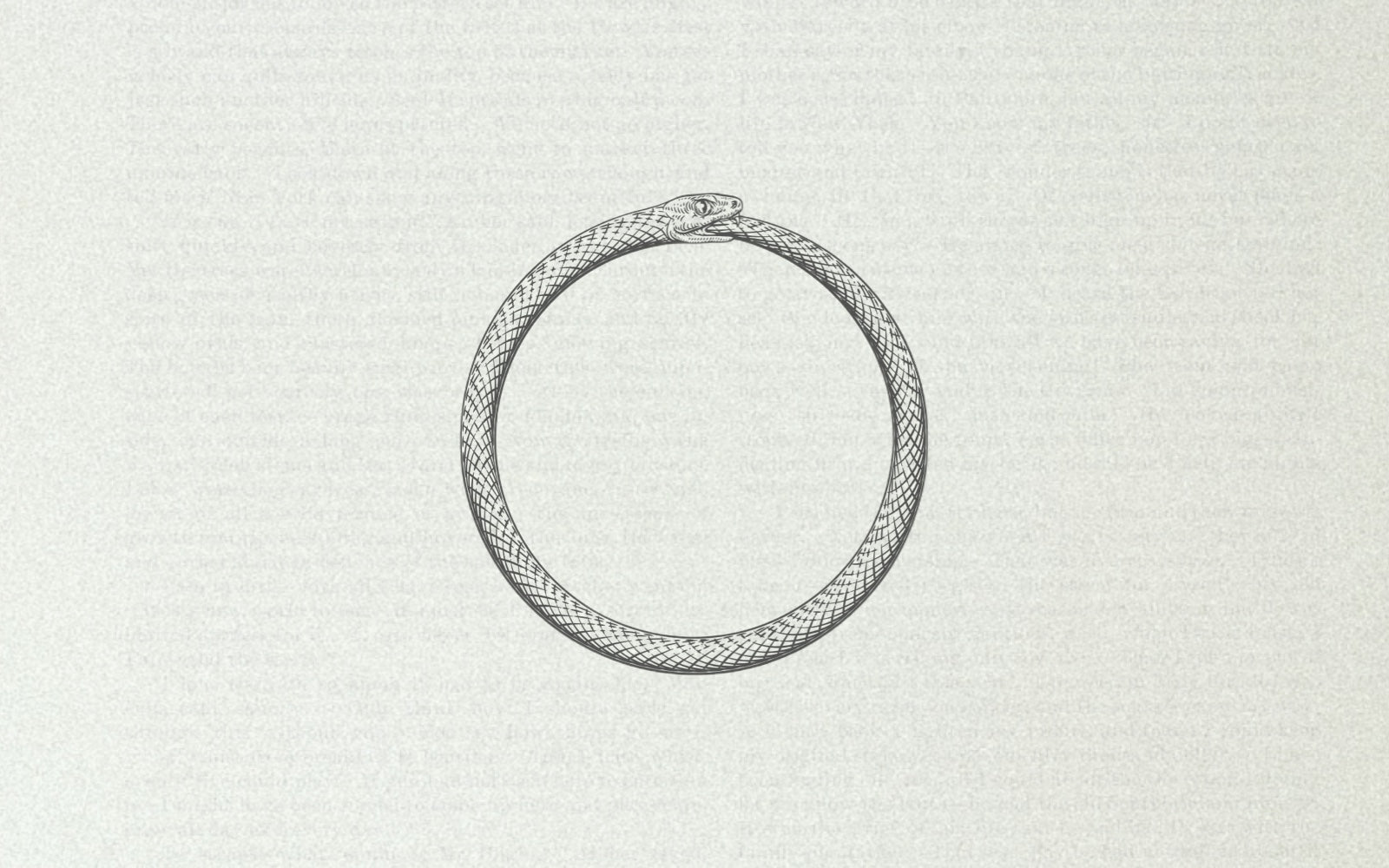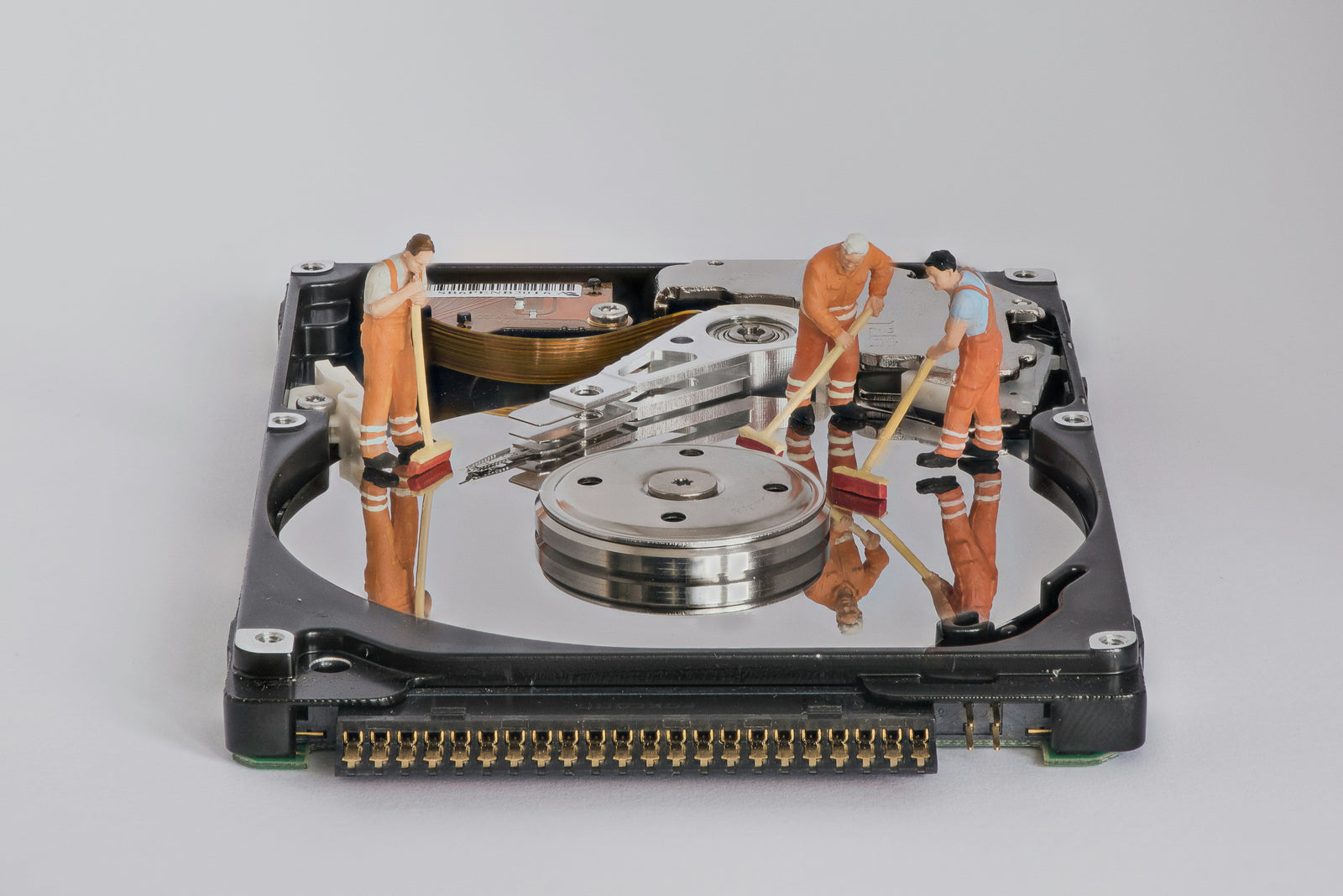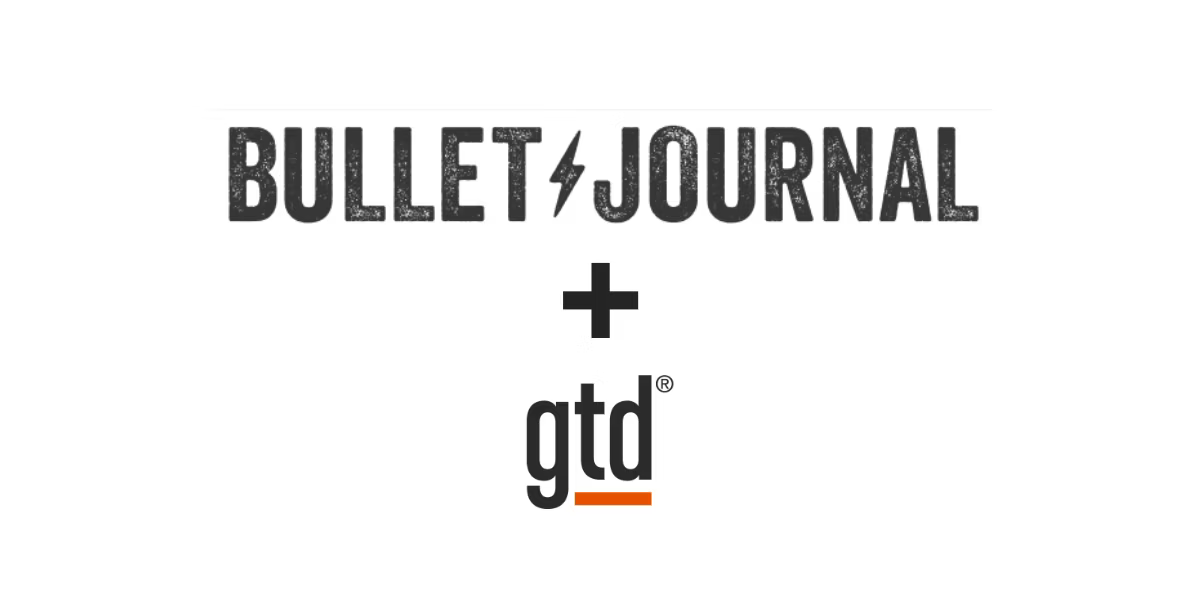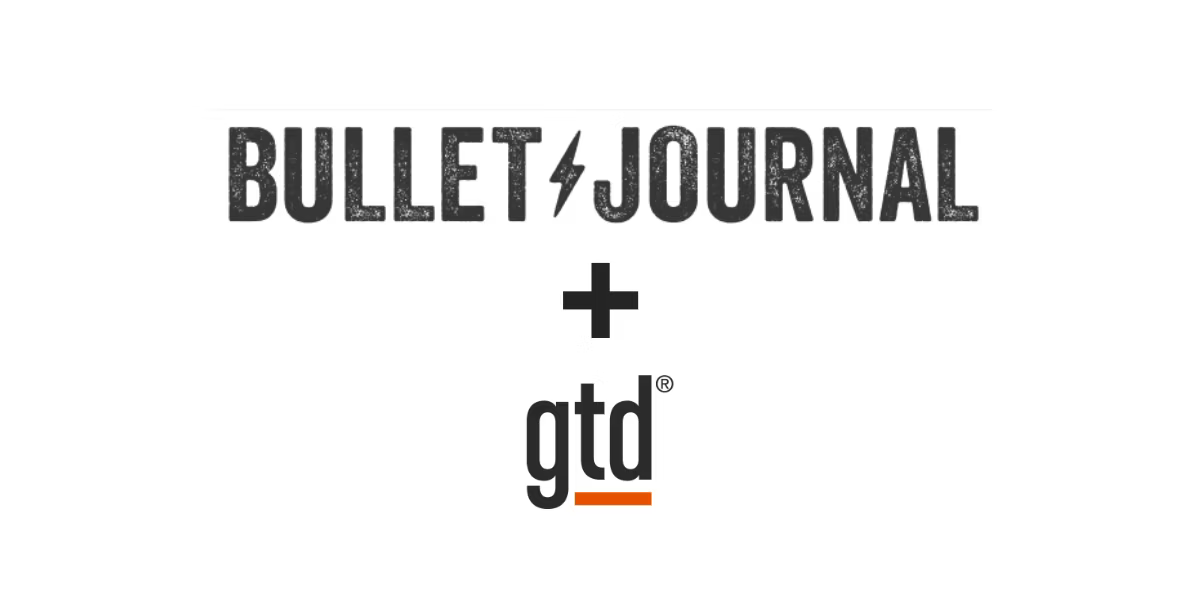Rebooting your Bullet Journal Practice
For two years, I used to meditate for an hour and a half most days. Ever since then, my practice has been in a state of decline until it finally vanished about six months ago…without me even realizing it. What I found alarming was how this practice that had played an important part of my wellbeing just faded out. Here, I want to share my exploration into why we stop doing things that are good for us, and how we can begin again.
I’ll approach this inquiry through the lens of Bullet Journaling, since I’m often asked something to the effect of “I fell off the BuJo wagon, how do I get back on?”
To me, these types of questions are interesting because they reveal the story of both successand perceived failure. On the one hand, a BuJo practice proved valuable enough to maintain their curiosity after they stopped. On the other hand, they stopped.
In order to figure out why we stop, I think it’s helpful to connect with why we started. So let’s go back to the very beginning. Actually let’s go back further. Before every solution, there must be a problem.
Why did you begin?
When looking back at what went wrong, we may realize that it may have little to do with our solution. Often our perceived failures boil down to the fact that we were trying to solve the wrong problem all along.
When you found the Bullet Journal Method (or therapy, calisthenics, intermittent fasting, ACT, CBT meditation etc), whatneed did you have? Without deeply considering what we need, we can risk wasting a lot of time solving the wrong problems.
For example, we launch a company to work for ourselves, train in a skill to make more money, run a marathon to get into shape. Though none of these solutions are inherently wrong, they may not address your underlying need.
A long time ago, I launched a company because I didn’t want to spend my life realizing the dreams of others, especially large corporations. After A LOT of hard work and sacrifice, I launched my own company to solve that problem. Strangely, that new reality felt just as unsatisfying as the old one! It soon became brutally clear that I had invested a lot of resources in solving the wrong problem.
My actual need was finding work solving problems I believe in. It was an entirely different need with entirely different solutions. Once I was able to realize that, my intentions changed as did my actions. I’ve gone on to very happily work for others whose vision and efforts I believe in.
One powerful way to define a need and/or problem is by trying to explain it to others. It forces you to get it out of your head, and think about it differently. I often do this in the form of a letter to an imaginary person who lacks context. This is also known as rubber ducking.
For example:
“I need a better way of responding to intrusive thoughts and feelings. Fusing with my negative thoughts and feelings, drains me of the resources I need to be who I want to be, and do what I want to do.”
“I need to be more organized. Not being organized is making everything, even the things I enjoy, much harder than it needs to be.”
“I need to have a dedicated time to myself. When I don’t, I start to get exhausted, overwhelmed, and resentful”
Do you want to run a marathon, or is your need to like what you see in the mirror? Do you want a million dollars, or is your need to make sure you can send your kids to school, or take care of your aging parents? Very different problems, with very different solutions.
To begin again, explorewhy you began. What problem were you trying to solve with your BuJo practice, and, more importantly, why does it matter? Does it still matter?
What changed?
When there’s a misalignment between what we do and what we care about, we won’t care about what we do. When it comes to Bullet Journaling, the needle in our compass is our intention. Our intention helps us align our actions with our values. Without an intention, we still have values, and we still act, but the two often don’t align.
Even if we did set a meaningful intention at the beginning of our practice, life happens. The countless responsibilities of our day to day can create a rift between our actions and our values until our practice no longer reflects our intentions.
Before beginning again, compare what youwanted to do, with what youended up doing; what youwanted to focus on vs what youended up focusing on. You may still be getting a lot of stuff done, but it has little to do with your original intention. Any misalignment, drift, or disconnect often explains the loss of motivation because, again, you’re solving the wrong problems.
With your notebook in hand, you will have a pretty accurate map to help you find the point of disconnect. When did the gaps start appearing? What changed at that point in your life? What were you focusing your time and energy on? Play detective in your own life, and see where you lost the trail.
When you follow the clues back upstream to the point of disconnect, you may find that the solution to the mystery reveals a plot twist: even if we stayed true to our original intention, our intention may not have stayed true to us.
Our circumstances are always changing. As our circumstances change, so do our needs. If your BuJo practice still focuses on a need that you no longer have, then you won't feel like you need your practice.
This is what happened to me with my my meditation practice. I had begun to meditate to help me sharpen my focus. That's not something that I care about anymore, and hasn't been for a long time.
Focusing on a problem that you no longer have, or no longer care about, is like taking a medication you no longer need: it can do more harm than good. In this case, you risk losing the vitality and relevance of your practice. Luckily, this is easily remedied.
Begin again by taking a close look at your current circumstances. What are you working on? What are you feeling? What do you want more of? What do you want less of? What problem or solution lights you up?
You want to look for the most resonant things and set an intention that will help you focus on those. This will keep your practice relevant over the long term.
The beauty of our practice is that it easily becomes whatever we need it to be. That's why our BuJo rituals are so important, because they grant us the opportunity to pause and check in with ourselves and ask: “what matters now?”
The Reboot Checklist
When trying to figure out what I wanted out of my meditation practice, I followed the same steps that I suggest to other's when the ask me about restarting their BuJo practice. I find this time-tested wisdom applies to most endeavors. I submit it here for your consideration.
1. Set an intention
If you never set an intention, now’s the time. What do you want to get out of your Bullet Journaling practice? What do you need? What problem are you trying to solve? What are you trying to learn? Most importantly, why is this important toyou?
You want to make sure that you don’t fall into the trap of setting an intention based on what you feel pressured or obligated to do. Though we all have our responsibilities, our intention needs to be something that matters to us. Otherwise our practice will feel like a hollow obligation, and will not be sustainable.
If you had set an intention and it still resonates, great! Write it down. It’s important. It will help you clarify it, maybe even update it. It’s so important to set an intention, that we dedicated the first page of the Edition 2 to it!
If the old intention no longer resonates, set a new one. Don’t overthink it. Write something down that lights you up. Like “I want my Bujo practice to help me set better boundaries” or “I want my BuJo practice to help me be kinder to myself” or “I want my BuJo practice to help me be more organized with the pursuit of my ambitions.”
When it comes to the Bullet Journal Method, defining your intentions is critical not only from a philosophical level, but also for a very tangible one. They help to define which tools, templates, projects, goals, and actions will help support your intention, and which ones will not.
2. Get rid of what doesn’t serve you
A common reason people stop doing things is when their system becomes impractical. A system becomes impractical when its complexity outweighs its utility.
The more complex a system becomes, the more time and energy it takes to maintain. If we’re not careful, there comes a tipping point where the system we used to help us become less distracted, becomes a major distraction in and of itself.
When rebooting your practice keep it as simple and focused as possible. Ask yourself: What is the most minimal toolset I need to keep my actions aligned with my values? Be ruthless, you will be surprised at how little you need to exponentially increase your results using a very focused toolset.
Add only when you need to, not before.
3. Focus on your needs
There are many in our community who generously share their notebooks online. I have mixed feelings about this. On the one hand, sharing what you’ve discovered in your BuJo practice to help others, makes our community so exceptional. On the other hand, sharing for the sake of external validation, or doing things because they get more views, likes etc., can quickly tip our practice into a performance.
Then there’s the flipside. There are those who stick very closely to spreads and techniques they’ve seen online, but it does not serve them. When that happens, they feel like they’re doing it wrong, or worse that something is wrong with them.
Though I think it’s wonderful to BuJowith others, I strongly discourage Bullet Journalfor others. The more we Bullet Journaling for others, the less it will serve our own needs. That is the most important question, is it serving you?
One question that is helpful here, is what would your practice look like if you could not share it with others? Chances are, it would focus on the things that are more urgent, and impactful.
4. Turn failure into feedback
Sometimes the hardest part of beginning again, is the specter of failure. Because you stopped, you may think you got it wrong, that you failed. Now you’re worried that maybe you will fail again.
Allow me to relieve you of that uncertainty: you’re right - you will certainly fail again…and again…and again. Why? Because you have to. It’s hard tounderstand what works withoutexperiencing what doesn’t. Clarity through contrast.
What I submit for your consideration is: try to meet your failure with curiosity. When something doesn’t work out the way you hoped it would, you have a choice: You can see it as a dead end, in which case, you’re right, it’s a dead end. Or you can perceive the experience as feedback, in which case you’re also right. Except this time, instead of a dead end, you’ll ways forward. It’s your choice.
If you start looking for feedback, you stop failing, and you start learning. Rather than doors slamming in your face, you’ll find valuable information that will open doors you would have never found otherwise.
If you’re looking to restart your practice, take the feedback from your last attempt. What worked? What what didn’t? What do you want more of? What do you want less of?
I want to slow down here for one moment. Curiosity or not, things not working out the way you hoped can be heartbreaking. That’s why meaningful intentions matter so much. Our intentions need to inspire us, because we often struggle to understand the feedback from the lessons we learn along the way. As long as our intentions remain a commitment to process, then there is no failure, only feedback.
5. Start now
Regardless of what you read online, time, effort, or money are not the main barriers of getting what we want, it’s the resourceless stories we tell ourselves. Two of the most convincing excuses are: “having to catch up” and “waiting for the perfect time.”
The past is gone. It no longer exists. The more time we spend focused on trying to capture it, or recreate it, the less time we spend focusing on the present. The present is the only time we have to create what we want. You don’t need to catch up, you just need to show up. It’s not the days that you don’t show up that matter, it’s the days you do.
Similarly, the future does not exist. We can’t predict what will happen, so waiting for the stars to align to begin, may keep you waiting indefinitely. Meanwhile life moves on.
Perfect or not, now is all we will ever have. The best time to begin, or start over, is always now. That is theonly story that is true. Keeping this in mind as afirst principle can help us see through our own excuses.
One thing that I love about Bullet Journaling, is that every day you begin with a blank page. To me that represents a fresh start. Every time you sit down with your notebook you begin again. You don’t start from scratch. Each beginning is shaped by the beginning before it, and that one before that, and so on. Each beginning becomes more powerful. The more you begin, the more powerful your ability to create becomes.
So in the end, there is really one question you need to start —or restart— your Bullet Journal practice: What do you want to begin, now?






Judy Morin
March 12, 2025
Very timely email to find in my inbox-box. When things pile up for me, as they have since August, I tend to stop relying on the system in place and instead react to the biggest fire one after another. Then I get overwhelmed when trying wrap my head around it all again. But I will, starting now. Thank you for the Reboot Checklist!